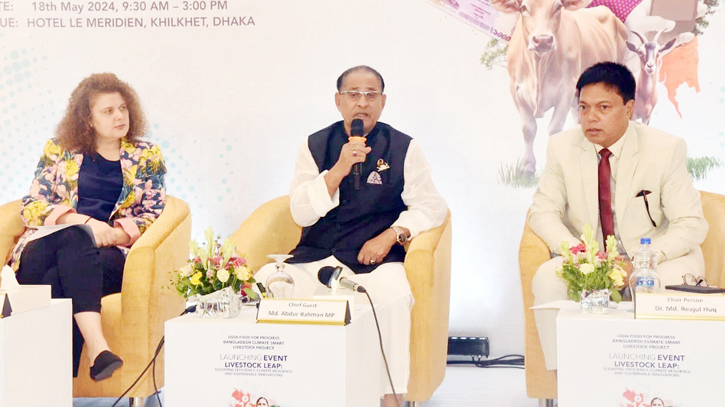
Photo: Collected
The United States Department of Agriculture (USDA) has launched its new “Bangladesh Climate Smart Livestock” project to enhance efficiency, promote climate resilience, and foster sustainable innovations in the livestock sector.
The USDA through the Food for Progress Program is investing over $34 million in this project over five years and will work closely with the Ministry of Fisheries and Livestock and the Bangladesh Livestock Research Institute to achieve sustainable results.
“We are excited to launch this innovative project. This project will simultaneously help smallholder livestock producers increase production and improve their livelihoods, while also reducing methane emissions,” said USDA Agricultural Attache Sarah Gilleski on Saturday.
This will show that climate change adaptation and mitigation do not need to come at a cost to agricultural production, Sarah said.
Fisheries and Livestock Minister Md Abdur Rahman spoke as the chief guest at the project launching ceremony. Bangladesh is one of the most vulnerable countries in the world to climate change, said the US Embassy in Dhaka.
The United States is committed to supporting Bangladesh implement climate-smart agricultural practices to help Bangladesh adapt to and mitigate the effects of climate change, it said.
This innovative new project will significantly boost livestock productivity, improve market access, and implement climate-smart practices across 16 targeted districts, ultimately benefiting over 250,000 livestock farmers, said the embassy.
The project will introduce advanced production technologies, improve animal health, and reduce greenhouse gas emissions, aligning with Bangladesh's national climate goals. By linking producers to end buyers and increasing access to investment capital, the project aims to grow livestock sales by $940 million over its five-year period.
Messenger/Fameema








